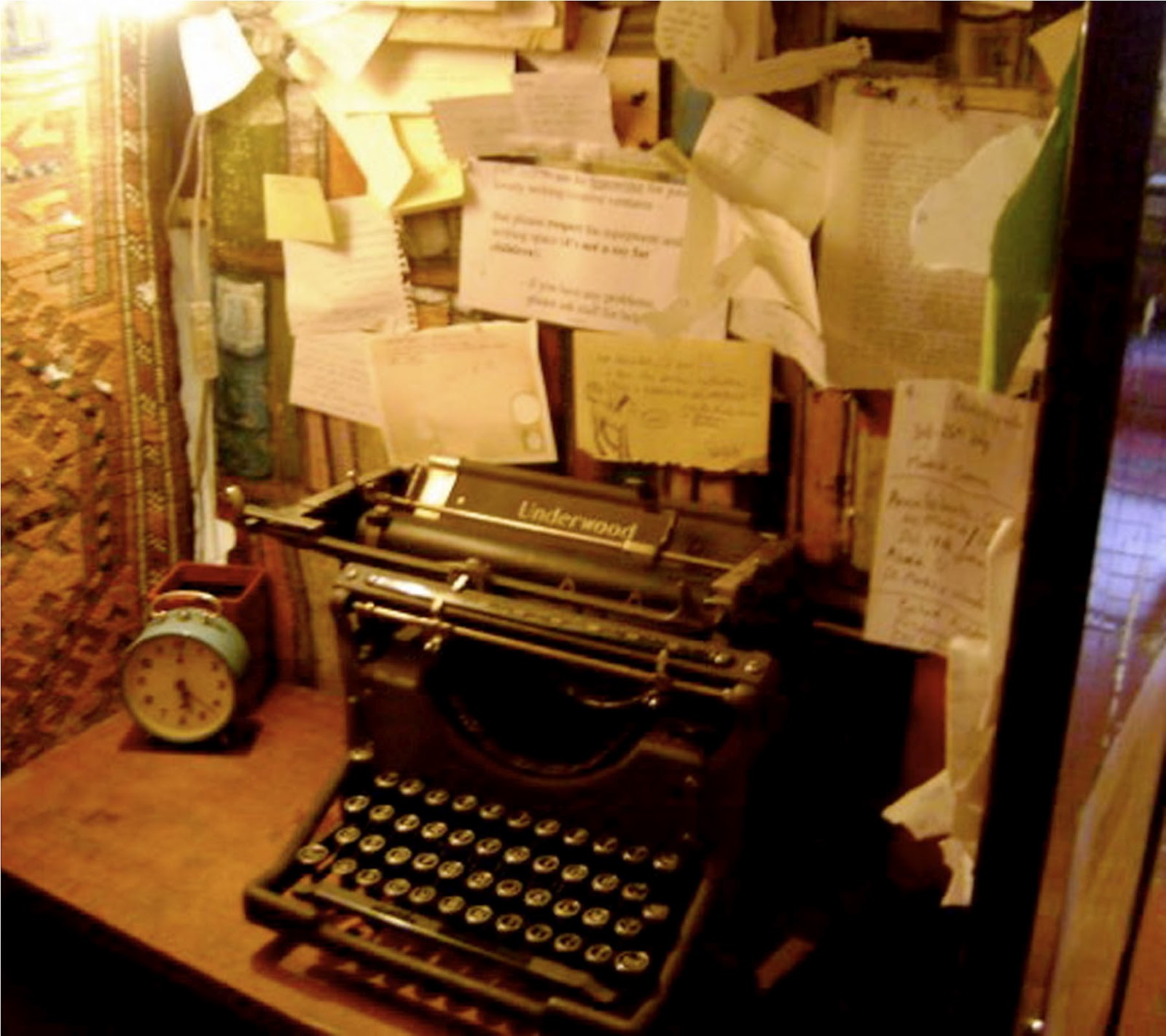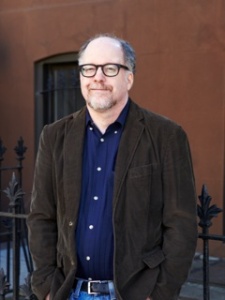The Gaudy Interview: Matthew Goodman
 Matthew Goodman is the author of three best-selling works of nonfiction. His latest project, Eighty Days: Nelly Bly and Elizabeth Bisland’s History-Making Race Around the World has been published to wide national acclaim and national best-seller lists. It is a USA Today “New and Notable” Pick, an iTunes “Best Book of the Month,” a Barnes & Noble Discover Great New Writers selection, an Amazon Best History Book of the Month selection, among other accolades. Goodman lives in Brooklyn, New York.
Matthew Goodman is the author of three best-selling works of nonfiction. His latest project, Eighty Days: Nelly Bly and Elizabeth Bisland’s History-Making Race Around the World has been published to wide national acclaim and national best-seller lists. It is a USA Today “New and Notable” Pick, an iTunes “Best Book of the Month,” a Barnes & Noble Discover Great New Writers selection, an Amazon Best History Book of the Month selection, among other accolades. Goodman lives in Brooklyn, New York.
Gaudy: Eighty Days makes us remember the fabulous West Wing episode, “And It’s Surely to Their Credit” (S02E05). In the episode, First Lady Abigail Bartlet (Stockard Channing) chastises the President (Martin Sheen) for not paying enough respect to Nellie Bly, and by extension, other women whose contributions to the country have been overlooked. Why do you think Bly’s story (and Bisland’s) continues to have significance over 100 years later for journalists, readers, even screenwriters like Aaron Sorkin? Do we remember them as symbols, as individuals, or some combination thereof?
MG: I love that episode! As it happens, I’m a big fan of The West Wing; I’ve always felt that it was one of the few TV shows — The Sopranos and The Wire are two more — from which writers could really learn their craft, about dialogue, pacing, revelation of information, and lots more. But in truth, I didn’t remember Abby’s oration about Nellie Bly until I was already working on this book, and somebody reminded me about it; then I went to YouTube and watched it with a big smile. In fact, as you point out, the First Lady is actually chastising the President for not remembering Nellie Bly, not giving her the credit to which she is rightly due as a pioneering female journalist.
That’s been my experience with Eighty Days as well — a lot of people sort of know Nellie Bly, they vaguely recognize the name, but are not quite sure why they know her or exactly what it was that she did. They don’t know, for instance, about how she actually feigned madness to get herself committed to the Blackwell’s Island Lunatic Asylum, so that she could experience first-hand the horrors endured by the female patients there and then subsequently write an expose of the place. That was incredibly courageous of her, because there was no guarantee that once she got in she would ever be able to get back out. (In fact it took all of Joseph Pulitzer’s doing to get her back out.) Since Eighty Days has come out I’ve heard from lots of female readers who were excited to find out about these daring, courageous women from more than a century ago; it’s actually been one of the most gratifying things for me about writing this book.
Gaudy: Thanks to Sorkin and others, I was familiar with Nellie Bly but had never heard of Elizabeth Bisland. How did you discover her, and what surprised you about her life?
MG: That’s true — some people still remember Nellie Bly and what she did, but no one remembers Elizabeth Bisland, and she’s well worth remembering. Originally I decided that I wanted to write this book because I was excited to write about Nellie Bly — she’s such a great character — and her race around the world. Immediately my mind filled up with images of the exotic places she went that I could write about in the year 1889 — Hong Kong! Yokohama! The Suez Canal! But then, as I began my research of the race, I discovered something even more astonishing: that Nellie Bly wasn’t only racing against the calendar, or against the fictitious character Phileas Fogg, from Jules Verne’s novel Around the World in Eighty Days. In fact, she was racing against another young female journalist, Elizabeth Bisland, who had left New York on the very same day as Nellie Bly. I was captivated by the notion of these two young women racing each other around the world, one heading east, the other west.
But who was Elizabeth Bisland? She’s somebody who’s been dropped almost entirely out of the historical record. I mean, she could have been anybody — she could have been this boring, useless person. It was a worrisome thought to me, because I knew that I wanted the book to be a double narrative, divided between the two rival racers, and if Bisland wasn’t equal as a character to Nellie Bly, then the reader would inevitably want to skip over her chapters to get back to Bly. Well, luckily for me, Bisland turned out to be just as compelling as Bly. I did a lot of historical digging — reading everything Bisland wrote, searching out the contemporaneous stories about her, tracking down her present-day descendants, and so forth — and little by little I was able to piece together the story of this really remarkable woman. Born on a ruined Louisiana plantation (she taught herself to read from burned volumes of Shakespeare and Cervantes, and taught herself French while she churned butter, so that she could read Rousseau in the original!), she came to New York with little money but soon established herself as a book reviewer. She was a fine poet and novelist and just a marvelous essayist; her essay collections are well worth reading even today. She and Bly — one Southern and the other Northern, one a poet and the other a journalist, one genteel and the other hard-driving — provided a perfect complement for each other.
Gaudy: The eighty-day “record” was, of course, fictitious, yet it became the record that defined these writers’ journeys. Throughout Eighty Days, fantasy, literature, and reality intersect and affect each other as Bisland and Bly travelled and wrote about their travels. Could you talk more about the power (and perils) of those intersecting forces in the narrative?
MG: Exactly so. Part of the power of Nellie Bly’s quest was that she was trying to see whether or not it might be possible to actually do in real life what Phileas Fogg did only in the pages of literature. There was great excitement for people in seeing the fantastic become actual: to see the modern world outpace what was once, only sixteen years earlier, confined to the realm of science fiction. And that was only one of the many narratives that surrounded this around-the-world race.
For many Americans, Bly’s quest to better Phileas Fogg was a kind of assertion of American supremacy (and this was an idea that Bly herself did nothing to dispel). Phileas Fogg was English — indeed, Jules Verne painted him as the quintessential Englishman — and Americans of the period relished the notion that an American would outdo the English-held record (even though it was one established only in a Frenchman’s imagination!). This, of course, despite the fact that Bly would be traveling on British and German ships, sailing on British-protected trade routes, passing through a British canal designed by a Frenchman, and riding on a transcontinental railroad laid down in large part by Chinese workers not even allowed American citizenship. The notion of the race as demonstrating any sort of American “superiority,” it must be allowed, itself owes more to fantasy than reality.
Gaudy: What’s next for you?
MG: Tough question! After I finished work on Eighty Days — that is, after the appropriate amount of laying around doing very little beside crossword puzzles — I began to look for my next book project. I knew that I wanted to do another book of narrative history, and it’s been my experience (and this has been confirmed for me by other narrative historians) that finding a book topic is in some ways the hardest, most harrowing part of the entire process. Before anything else, of course, it has to be a great story – something with drama, tension, excitement, what have you – and ideally it’s one that has a clearly defined beginning, middle, and end. And it should feature a compelling, fascinating main character or characters, someone who will maintain a reader’s interest over the course of the book. And ideally it should provide an opportunity to work outward into a discussion of larger social issues — in the case of Eighty Days, issues like gender roles and technology and colonialism and so forth.
Really, what I was looking for was a story as good as that of Nellie Bly and Elizabeth Bisland, and that was a tall order indeed. For most of the past year I’ve been looking for just the right idea, one that had all those necessary qualities and also hadn’t been done yet. I looked into more than a dozen hopeful-seeming possibilities only to have to discard them all for one reason or another. Then, just in the past few weeks, I hit on an idea that I haven’t yet found reason to discard. I don’t want to say much about it (don’t want to jinx anything), but it’s set in the early twentieth century. Like Eighty Days it has an exciting central narrative — there’s a murder in it — and features an interesting set of female characters about which people today don’t really know very much. And like Eighty Days, the central narrative might also allow for discussion of some larger social issues. So right now I’m hopeful, but I’m still crossing all my fingers and toes.
Our thanks to Matthew for a wonderful interview. Eighty Days is available at Barnes & Noble, Amazon, and independent book stores.
Read our interviews with short story writer Ethan Rutherford (“The Peripatetic Coffin and Other Stories”), author Mason Currey (“Daily Rituals: How Artists Work”) and actress Shavanna Calder.



I thoroughly enyoyed the book. Thank you for the review. I found myself cheering for both women!